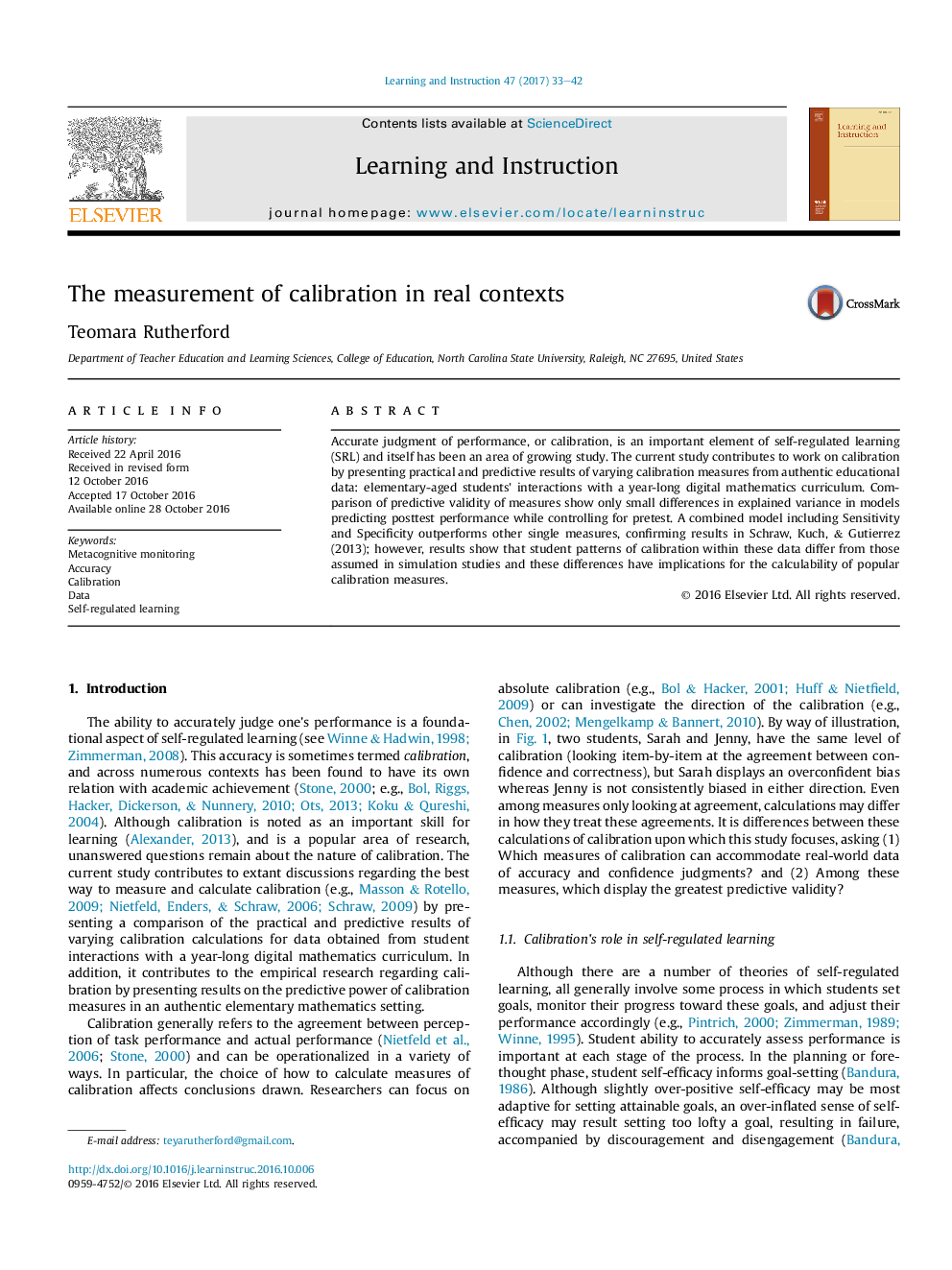| Article ID | Journal | Published Year | Pages | File Type |
|---|---|---|---|---|
| 4940305 | Learning and Instruction | 2017 | 10 Pages |
Abstract
Accurate judgment of performance, or calibration, is an important element of self-regulated learning (SRL) and itself has been an area of growing study. The current study contributes to work on calibration by presenting practical and predictive results of varying calibration measures from authentic educational data: elementary-aged students' interactions with a year-long digital mathematics curriculum. Comparison of predictive validity of measures show only small differences in explained variance in models predicting posttest performance while controlling for pretest. A combined model including Sensitivity and Specificity outperforms other single measures, confirming results in Schraw, Kuch, & Gutierrez (2013); however, results show that student patterns of calibration within these data differ from those assumed in simulation studies and these differences have implications for the calculability of popular calibration measures.
Related Topics
Social Sciences and Humanities
Psychology
Developmental and Educational Psychology
Authors
Teomara Rutherford,
